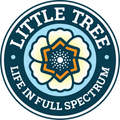Natural Wellness Spotlight: What is CBG?
Cannabigerol (CBG) is a cannabinoid, meaning it’s one of the many chemicals found in cannabis plants. The most well-known cannabinoids are cannabidiol (CBD) and tetrahydrocannabinol (THC), but there’s recently been more interest in the potential benefits of CBG.
CBG is considered to be the precursor to other cannabinoids. This is because CBG-A, the acidic form of CBG, breaks down to form CBG, CBD, THC, and CBC (cannabichromene, another cannabinoid) when heated.
How does it compare to CBD?
CBD and CBG are both non intoxicating cannabinoids, meaning they won’t make you high. They also both interact with the same receptors in the body, according to a 2018 study, and appear to have anti-inflammatory effects.
However, CBG does seem to have some different functions and health benefits than CBD.
What are the potential benefits?
While the research on CBG is limited, studies that do exist suggest that it offers several benefits.
CBG may be able to improve the following health conditions:
Inflammatory bowel disease
CBG seems to reduce the inflammation associated with inflammatory bowel disease, according to a 2013 study conducted on mice.
Glaucoma
Medical cannabis seems to effectively treat glaucoma, and CBG might be partly responsible for its efficacy. A study published in 2008 suggests that CBG might be effective in treating glaucoma because it reduces intraocular pressure.
Bladder dysfunctions
Some cannabinoids seem to affect the contractions of the bladder. A 2015 study looked at how five different cannabinoids affect the bladder, and it concluded that CBG shows the most promise at treating bladder dysfunctions.
Huntington’s disease
CBG might have neuroprotective properties, according to a 2015 study that looked at mice with a neurodegenerative condition called Huntington’s disease. The study concluded that CBG might show promise in treating other neurodegenerative conditions.
Bacterial infections
A 2008 study suggests that CBG can kill bacteria, particularly methicillin-resistant Staphylococcus aureus (MRSA), which causes drug-resistant staph infections. These infections can be hard to treat and fairly dangerous.
Cancer
A 2014 study looked at colon cancer in rats and concluded that CBG might reduce the growth of cancer cells and other tumors.
Appetite loss
A 2016 study on rats suggested that CBG could stimulate the appetite. Appetite-stimulating chemicals could be used to help those with conditions such as HIV or cancer.
While these studies are promising, it’s important to remember that they don’t confirm the benefits of CBG. Much more research is needed to fully understand how CBG works in the body.
Little Tree Labs has developed both CBG and CBG/CBD 1:1 Tinctures which are available now. If you would like to give them a try enter code:TRYCBG15 and take 15% off your first purchase!

